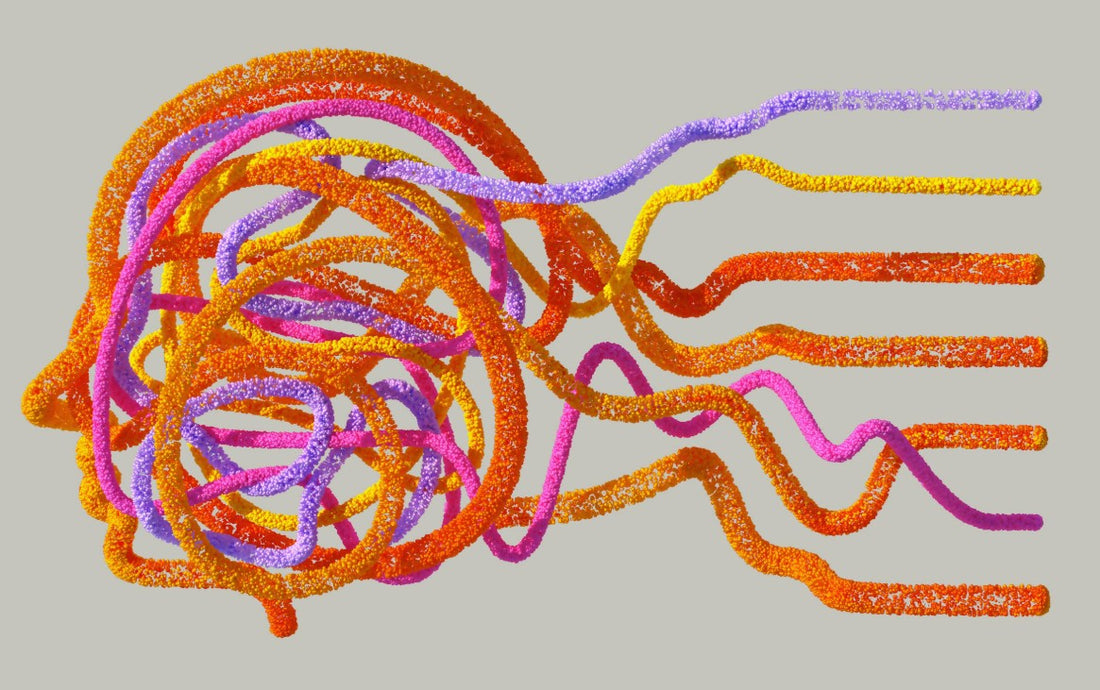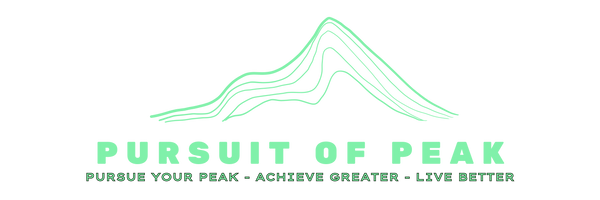
The Gut Brain Connection: How Gut Health Shapes Your Mood and Mind
Share
The link between your gut and brain is more than a wellness trend. It is a biological fact backed by science. Known as the gut brain axis, this two-way communication system connects your enteric nervous system (your gut's neural network) with your central nervous system (your brain). When one is out of balance, the other often follows.
Your gut does more than digest food. It produces neurotransmitters like serotonin and dopamine, hosts 70 percent of your immune system, and contains trillions of microbes that influence inflammation, hormones and even how you respond to stress. If your mental health feels off, your gut may be a root cause, and an unexpected solution.

Understanding the Gut Brain Axis
The gut brain axis works through three main pathways: neural, hormonal and immune. The vagus nerve acts like a phone line, allowing your gut to talk directly to your brain. When you experience stress or anxiety, your gut responds. When your gut is inflamed or imbalanced, your mental state often suffers.
Recent research shows that conditions like depression, anxiety and even cognitive decline are linked to dysbiosis, an imbalance in gut bacteria. A 2022 review in Frontiers in Neuroscience found that individuals with depression consistently show different gut microbiome profiles than healthy controls.
Your Second Brain: The Enteric Nervous System
The enteric nervous system is a vast network of neurons embedded in your gastrointestinal tract. It is sometimes called the "second brain" because it can operate independently of the brain and spinal cord. It controls digestion, secretion and gut motility, and it influences how you feel.
When your gut flora is healthy, it produces short-chain fatty acids like butyrate that support brain function, reduce inflammation and nourish the gut lining. But when your gut barrier becomes compromised, toxins and inflammatory particles can enter the bloodstream and cross the blood brain barrier, leading to mood disturbances and brain fog. Studies on gut permeability suggest this mechanism is crucial in mental health disorders.
The Microbiome Mood Connection
A 2021 study in Nature Microbiology found that specific bacterial strains like Lactobacillus and Bifidobacterium can reduce anxiety and depressive symptoms. These probiotic species produce gamma aminobutyric acid (GABA) and influence serotonin production, both of which calm the nervous system and uplift mood.
Researchers now call these strains psychobiotics, bacteria that benefit mental health. While they are not a replacement for therapy or medication, improving gut diversity and resilience can be a powerful companion to other treatment strategies.
How to Improve Gut Health for Better Mood
- Eat fibre-rich foods like legumes, vegetables, seeds and resistant starches to feed good bacteria.
- Reduce processed foods and sugar, which promote dysbiosis.
- Incorporate probiotic-rich foods such as kefir, sauerkraut and yoghurt.
- Manage stress with breathwork, meditation, laughter and nature time. Chronic stress weakens gut lining and alters motility.
- If needed, work with a practitioner to test for imbalances or inflammation markers.
Nourish Your Gut and Your Mind

Your brain and gut are in constant conversation. Supporting your gut health with whole foods, movement, sleep, and stress-reducing rituals can improve not only your digestion but also your clarity, calm and focus. It is not about a quick fix. It is about restoring balance to the system that underpins both physical and emotional wellbeing, with a little curiosity and patience, your gut might just surprise you.
🗻Yours in Pursuit, Casey
FAQs
-
What is the gut brain axis?
It is the communication network between your gut and brain, involving nerves, hormones and immune signals. -
Can gut health really affect mental health?
Yes. Gut bacteria influence mood, stress resilience and neurotransmitter levels. -
What foods support the gut brain connection?
Fibre-rich vegetables, fermented foods and healthy fats help your microbiome thrive. -
Do probiotics improve mood?
Some strains do. Look for Lactobacillus and Bifidobacterium species. -
How do I know if my gut is imbalanced?
Common signs include bloating, fatigue, mood swings and food sensitivities. -
Is the vagus nerve part of the gut brain axis?
Yes. It is a major pathway that links the gut and brain and plays a role in calming the nervous system.

